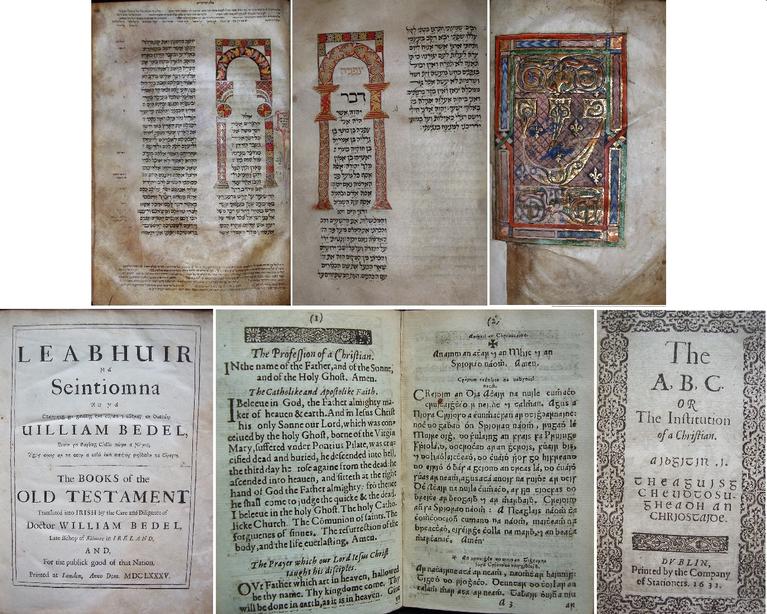Blog
9 July 2020

Three rare books in Emmanuel Library witness to the legacy of a life that represents a remarkable openness to other cultures.
William Bedell (1571-1641) came to Emmanuel as a student in the year of its foundation, 1584. He was partially deaf. By 1592 he was a Fellow and by 1597 ordained; he later left, as the Founder intended, to take up the ministry. By 1607 he was chaplain to the English ambassador to Venice. It was an exciting time for an English Protestant to be in Venice, since the Serene Republic’s decidedly unserene relations with the Papacy at this period made Protestants dare to hope that Venice too would throw off the shackles of papal authority. Bedell much admired the beautiful Venetian churches and spectacular ecclesiastical ceremonies, and his affection for Venice always moderated his staunchly Protestant criticisms of Roman Catholicism. It was in Venice that Bedell took Hebrew lessons from a prominent rabbi of the Venetian ghetto, Rabbi Leo da Modena, and at this time that Bedell acquired – reputedly for its weight in silver – the splendid thirteenth-century Hebrew Bible that he would later bequeath to Emmanuel.
After returning to his parish duties near Bury St Edmunds, Bedell reluctantly accepted appointment in 1627 as Provost of Trinity College Dublin. Here he controversially instituted frequent lectures in the Irish language and began his own study of Irish, intent on bringing the reformed faith to the Irish in their own tongue. Neither Bedell nor his wife had wanted to leave the safety and comfort of Suffolk for Ireland – and there was no financial incentive – but Bedell felt it was his duty. In 1629 he was appointed Bishop of Kilmore in Co. Cavan, a predominantly Gaelic-speaking area. Bedell published a bilingual catechism with parallel English and Irish texts (Dublin, 1631), and Emmanuel possesses in Archbishop Sancroft’s library one of the only two known copies surviving of this little book. Bedell also worked on a translation of the Old Testament into Irish, the bulk of which was prepared under his direction and with his assistance. It was published posthumously in 1685 and long remained the only translation.
Although so staunchly Protestant, Bedell was comparatively liberal in Ireland: he believed souls should be won by persuasion, and was respected by both Protestants and Roman Catholics for his opposition to corruption in the Church of Ireland and his concern for the spiritual welfare of Irish people. At a time when most Protestants thought the Irish language should be stamped out, Bedell’s catechism and Old Testament show him respecting, accepting and adapting to the culture in which he found himself.
In the Irish rising of 1641 Bedell was evicted from Kilmore by the rebels and his library and effects were burned (his Hebrew Bible being saved by a grateful admirer). During an unusually severe winter he was confined for several weeks on the derelict island-fortress of Clough Oughter. This broke his health and he died soon afterwards. As a sign of respect the rebels provided a military escort for his funeral cortege and fired a volley over the grave, pronouncing the ambivalent epitaph:
‘Requiescat in pace ultimus Anglorum’
[Rest in peace, ultimate – best? last? – of the English].
(Bedell’s Hebrew Bible has recently been digitized as part of an ambitious project by The National Library of Israel to digitize all Hebrew manuscripts).
Barry Windeatt (Keeper of Rare Books)
Images by Helen Carron (College Librarian)
